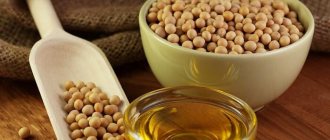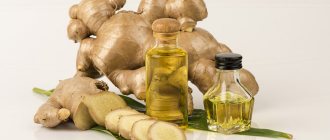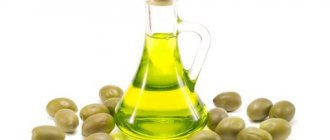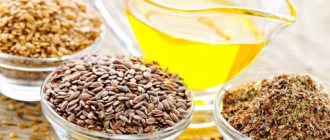Which unrefined sunflower oil is better?
Unrefined sunflower oil is divided into premium and first grade products and oil for industrial processing. Since Roskachestvo is only interested in the oil that consumers find on store shelves, only first and highest grade oils took part in this study. In the course of a fan study of unrefined sunflower oil, the quality and safety characteristics of 17 domestic products under the following trademarks were studied: Zateya, D, Kubanochka, Zolotaya Semechka, My Sun, Gifts of Pridonya, Gifts of Kuban, VkusVill, Alyonushka, GLOBUS, Selyanochka, Rossiyanka, Yug Rusi , Kuban Favorite, Every Day, Golden Sunflower, Sloboda. The samples were purchased from various retail outlets in Moscow and the Moscow region. The products were carefully examined according to 31 parameters. The cost of the selected samples at the time of purchase ranged from 75 to 130 rubles.
Russian quality system standard
The standard of the Russian quality system for unrefined sunflower oil, in comparison with the current GOST, sets higher requirements for color and acid numbers, which indicate the quality and degree of purification of the product. The increased standard of Roskachestvo also more strictly considers the parameters of the mass fraction of moisture and volatile substances in the product and the mass fraction of non-fat impurities and excludes the use of antioxidants, flavors and other food additives. The use of sunflower seeds obtained using GMOs is not allowed. The required level of production localization for awarding the Russian Quality Mark is at least 98% of the cost of the product.
Differences from refined oil
Unrefined sunflower oil, like hundreds of years ago, undergoes exclusively mechanical purification during production, in contrast to the refined (including chemically purified) product, which was previously studied by Roskachestvo. Therefore, it has an intense color, pronounced taste and smell. The appearance of this product allows for slight cloudiness and sediment, since unrefined oil contains accompanying substances (phospholipids, tocopherols, carotenoids and wax), which significantly increase the physiological value of the product. Unrefined oil is a rather capricious product: it does not tolerate light and can only be stored at room temperature, and the opened package should be immediately sent to the refrigerator. According to GOST, the shelf life of unrefined sunflower oil is four months. When purchasing, do not forget to pay attention to the date of manufacture: keep in mind that the product must be consumed fairly quickly. In addition, it is worth knowing that the highest quality unrefined oil is obtained from the fresh harvest (in August - September).
Sometimes, to extend shelf life, manufacturers resort to hydration by subjecting the oil to additional treatment with water. Through this process, phosphatides, mucilages and other hydrophilic substances precipitate in the form of flocs, after which they are removed. Experts note that hydrated oil is much paler in appearance, and poorer in taste and smell than the “classic” unrefined product. There was no hydrated sunflower oil among the studied samples.
Story:
Sunflower was brought to Russia from Holland during the time of Peter the Great - then the flower was grown exclusively in gardens for beauty. And for almost a century no one even realized that oil could be obtained from the seeds of this unusual plant. Only in 1829, a serf peasant from the Voronezh province, Daniil Bokarev, decided to benefit from the “sun”: he collected the seeds and tried to extract oil from them. Four years later, the world's first oil mill was built in the village. The Church recognized sunflower oil as a lean product, which is how its second name appeared – vegetable oil. In those days, only unrefined sunflower oil was produced, and the technology for its production has not undergone major changes since then.
Walnut oil
They are considered the healthiest of all nuts - due to the highest amount of antioxidants. They also contain large amounts of vitamin E, phosphorus, calcium, magnesium and zinc. The advantage of walnuts and vegetable oil from them is their ability to protect against cardiovascular diseases, reduce blood pressure and the level of “bad” cholesterol, and have a beneficial effect on memory and concentration.
This oil has an interesting nutty taste that can be successfully used in the kitchen. It is ideal for salads, sauces, and is an excellent addition to pancakes and various desserts. However, the product is not intended for frying, because due to high temperature it loses its aroma and acquires a bitter taste.
A few words about spin
Unrefined sunflower oil is obtained only in one way - by pressing, during which crushed sunflower seeds are placed under a press. During the production of oil, cold and hot pressing are used. It is believed that the lower the temperature when the oil is released, the higher the quality of the finished product. Thus, when cold pressed, the oil retains all the beneficial substances, vitamins and microelements, while it has a faint odor, which for many consumers is the determining criterion when choosing. During hot pressing, the seeds are exposed to higher temperatures, this leads to an increase in the actual yield of the product, but reduces its quality. It is worth saying that formally, during both cold and hot pressing, the oil heats up; the difference between the two methods lies in the temperatures used, and each manufacturer has their own. It is also important to pay attention to products that are labeled “first spin”. Some may think that this indicates a higher quality oil, but this is not the case. The unrefined product, as experts explain, is always extracted from the seed using the so-called first extraction, there is nothing special about it. This phrase hides the same method - the pressing method.
Features of vegetable oil for frying and salads
To understand which oil is better to choose for frying and salads, you need to understand their features. They are obtained from fruits and seeds.
The oils contain many trace elements and vitamins, but the main benefit is their high content of unsaturated fatty acids Omega 3, 6 and 9.
For normal functioning of the body, a balanced supply of these acids is necessary. But the most popular sunflower contains the most Omega 6. If a person consumes only this, his fat metabolism is disrupted. Sources of Omega 3 are flaxseed, camelina and olive oils. Therefore, it is recommended to diversify your diet. But it is also important to choose the right fats for different dishes.
Vegetable oils differ in their production method:
- The most useful is raw oil. It is obtained from unroasted seeds using a press. It has a pronounced taste and aroma, but under the influence of high temperatures it is destroyed.
- Cold-pressed oil is extracted after heating it to 600. In this case, some of the beneficial substances are lost.
- Refined is obtained by heating to 5000 and mixing with chemicals. After this, there is almost nothing useful left.
- Deodorized is an oil that has been treated with special substances to remove odor.
Unrefined oil is the healthiest, but you cannot fry with it, since when heated it decomposes, releasing harmful substances.
Reference:
On the label of unrefined sunflower oil you can sometimes find the inscription “frozen”. In this study, out of 17 samples, two were made using freezing: Kubanochka
and
Sloboda
. The essence of this method is to slowly cool the oil with very little stirring. This method has virtually no effect on the taste; the characteristic smell of the oil and the “greasy” taste, which some consumers do not like, are only slightly reduced. At the same time, all vitamins and nutrients remain intact, and the oil becomes more transparent. So you shouldn’t bypass frozen butter; its quality is no worse, and it will be stored longer.
Corn oil - benefits and harms
Corn is loved all over the world for more than just its fun popcorn. According to statistics, in our country the consumption of dietary corn oil increases annually. On the list: the healthiest vegetable oils, corn, takes an honorable third position.
• What are the benefits?
Corn oil contains twice as much vitamin E as sunflower oil. In addition, it is responsible for fertility and youth of the body, improves blood quality and helps the absorption of vitamin A. Corn germ oil has a high level of vitamin D and linoleic acid (it needed to regulate blood clotting and strengthen the body's immunity). It is also beneficial for the muscular system.
• Where to use
Corn oil is available exclusively in refined and deodorized form - transparent golden and practically odorless. And this is exactly what is best suited for frying, stewing meat, fish and vegetables, and it is also especially recommended for making dough. The benefits of corn oil are great, but there is nothing to say about the harm; no downsides have been noticed.
Freshness and purity of oil
During laboratory tests of sunflower oil, experts pay special attention to the parameters of its freshness and purity. The quality of the oil in a product is expressed by the so-called acid number. It shows the content of free fatty acids in the oil and depends on the characteristics of the raw material - the seed from which it is obtained. The GOST standards in force in the country establish fairly strict requirements for this parameter: the acid number for unrefined first-grade sunflower oil should not exceed 4, and for the highest - 1.5 units. The Roskachestvo standard for this indicator has established a requirement for all varieties of 2.25 units. Research on this indicator gave optimistic results: all selected samples did not exceed the upper limit of the Roskachestvo standard requirement. This allows us to conclude that there were no stale samples among the examined oil.
Vegetable oil consumption rate
They say that you can’t spoil porridge with oil, but even vegetable oil should be consumed in moderation
.
The fact is that different vegetable oils consist of different types of fats: monounsaturated, saturated and polyunsaturated. Each type of fat has specific properties. If we talk about the amount of vegetable oil per day for one person, then it should be 10% of the fat received per day.
Refined fats are harmful to the body, so you should not get carried away with them. As always, everything natural is healthier. Healthy vegetable fats include oils from nuts, seeds, avocados and other fruits.
.
Harmful fats include refined and most polyunsaturated fats. To navigate the variety of vegetable oils and understand which one suits us best, let's look at the brief characteristics of different types of vegetable oils .
Color matters
No less important when experts study unrefined sunflower oil is an indicator such as the color number - it tells about the degree of purification of the oil. According to GOST, this indicator for first grade unrefined sunflower oil should not exceed 25, and for highest grade – 15 units. The Roskachestvo standard sets the upper limit at 15 units for both the first and highest grades. Almost all samples met the Roskachestvo standard for this indicator. It is worth noting that two products, Selyanochka
and
South of Russia
, passed the upper limit of the requirements - their color number was 15. The lowest values of the color number, namely 2.5 units, were found in samples under the trademarks:
My Sun, Gifts of Kuban, D
and
VkusVill
.
Need to be persistent
Sunflower oil cannot resist light, and it does not matter whether its source is the sun or an incandescent lamp. The process of fat oxidation constantly occurs in the product, and in the light it accelerates several times. That is why it is better to store such natural oil in a dark place. The degree of oxidation of the product due to the accumulation of peroxide compounds is reflected by the peroxide number, which is also examined during testing. If the oil was not stored correctly (for example, the seller stored it in a light warehouse), peroxide values may exceed acceptable levels. At the same time, the product's shelf life will decrease and a characteristic rancid taste may appear. The GOST current in the country sets the peroxide value for the first grade to a maximum of 10 units, for the highest - to 7 units. The Roskachestvo standard established the requirements as in the CU TR: 10 units. Based on the data received from the laboratories, products under the trademarks: My Sun
(11.4 units) and
Golden Sunflower
(12 units).
Salad oil: which is better?
The article talks about which salad oil is best to use. From a huge variety of vegetable oils, you need to choose those that are most beneficial for your health.
What to dress the salad with
Only those who have ever eaten a salad without dressing, dry, can appreciate the taste and aroma of the oil with which the dish is seasoned.
However, not only the taste is important, but also the usefulness of vegetable oil. And it is determined by the presence of unsaturated fatty acids, antioxidants and secondary plant substances.
The most commonly used are olive, sunflower and rapeseed oils. But there are also flaxseed, pumpkin, burdock, corn, sesame, nut and even such exotics as avocado and truffle oil!
It's time to make your choice and find out which one is most suitable for salads.
The general criterion is that it must be cold pressed. It is also advisable to use unrefined oils - they contain the greatest amount of useful elements.
Flaxseed oil for salad
Flaxseed oil holds the record for the amount of omega-3 unsaturated fatty acids it contains. There are more of these acids in this oil than in such a well-known product as fish oil!
Beneficial properties of flaxseed oil:
- improves the functioning of the cardiovascular system;
- nourishes the brain;
- reduces the amount of bad cholesterol;
- normalizes blood sugar, therefore necessary for diabetics;
- regulates blood pressure;
- improves overall well-being
Flaxseed oil can not only be used for salads, but also separately. For example, a crust of bread, poured with a spoon of this butter and lightly sprinkled with salt, is a tasty and healthy delicacy.
Recipe for green salad with flaxseed oil
We will need:
- medium sized cucumber;
- a bunch of dill and parsley;
- a tablespoon of flaxseed oil and sour cream;
- salt and pepper to taste
Wash the cucumber and greens, cut them, salt, pepper and season with sour cream and linseed oil.
Sunflower oil: which is better?
In Russia and the former republics of the USSR, sunflower oil is most widespread. It is made from sunflower seeds and comes in various types.
For salads, the most suitable oil is cold-pressed oil that has not undergone any refining.
Sunflower oil contains a sufficient amount of unsaturated fatty acids. It also contains vital vitamins A, D, E and K.
Vitamin A is responsible for visual acuity; in the presence of vitamin D, calcium, necessary for teeth and bones, is better absorbed. Vitamin K affects blood clotting. Vitamin E is an antioxidant
The disadvantages of sunflower oil include its high calorie content (900 kcal/100 g).
Salad recipe with tomatoes, mozzarella cheese and sunflower oil
Ingredients:
- two medium-sized tomatoes;
- half an onion;
- packaging of mozzarella cheese;
- a tablespoon each of apple cider vinegar and sunflower oil;
- small cucumber;
- several leaves of green salad;
- salt and spices to taste
Wash vegetables and herbs, cut them, add diced cheese. Salt and season with a mixture of vinegar and sunflower oil.
Olive oil for salad
Olive oil is a very healthy product.
Its properties:
- reduces the risk of developing cardiovascular diseases and cancer;
- reduces the amount of bad cholesterol;
- normalizes blood pressure;
- normalizes blood sugar;
- prevents the occurrence of tumors and depression
Mediterranean cuisine is known all over the world. Thanks to the predominance of olive oil in all its types, the inhabitants of this region are distinguished by enviable health and longevity.
The retail chain offers olive oil of various varieties. For salads, you should choose cold-pressed, unrefined oil, preferably Greek-made. Why not Italian? Yes, because very often Italian olive oil is a counterfeit, in which expensive olive oil is mixed with cheap rapeseed oil.
Rapeseed oil - what is it?
Significant agricultural areas are allocated to rapeseed in Germany and some other European countries. Rapeseed oil is made from the seeds of this plant. At the end of spring, such fields present a very picturesque sight - an endless sea of cheerful yellow color.
Rapeseed oil contains 25-30% polyunsaturated and 50-60% simple unsaturated fatty acids. Such acids have a positive effect on the cardiovascular and nervous system.
One tablespoon of rapeseed oil is enough to cover the body's daily requirement of omega-3 acids.
Rapeseed oil contains a lot of carotenoids and vitamin E. These compounds successfully fight free radicals because they are good antioxidants.
Radish salad recipe with rapeseed oil
We will need:
- a bunch of radishes;
- several stalks of green young onions;
- a bunch of parsley and dill;
- a tablespoon each of rapeseed oil and apple cider vinegar;
- sour apple;
- salt and spices to taste
Wash the vegetables, cut them, add the chopped apple, salt, pepper and season with oil and vinegar.
Pumpkin oil: how to make it at home
Pumpkin seed oil is sometimes called “green gold” because it has many beneficial properties for the body. It has a rich composition: vitamins A, B1, B2, B6, C, D, E, linoleic and linolenic acids, minerals and trace elements.
Pumpkin seed oil has the following effects on the human body:
- strengthens the heart muscle and blood vessels;
- lowers cholesterol and blood pressure;
- prevents prostatitis in men and inflammatory diseases of the appendages in women;
- has a positive effect on the condition of the skin, hair and nails;
- cleanses the body of waste and toxins;
- normalizes the functioning of the gastrointestinal tract and endocrine system
Health and well-being can be significantly improved by consuming one teaspoon of pumpkin seed oil daily.
The easiest way is to buy pumpkin seed oil in the store. However, you can do it yourself, although the process is quite labor-intensive. From three kilograms of seeds you can get no more than 100-150 g of oil.
First, you need to grind the seeds in a coffee grinder until they become flour. Lightly fry the flour until golden brown, dilute with water to form a thick paste. Place the mixture under a press for about a day. Store the oil obtained in this way in a dark container in a cool place.
Beet salad with pumpkin seed oil
Ingredients:
- medium-sized beets;
- a bunch of any aromatic herbs (parsley, dill, cilantro);
- a tablespoon of pumpkin oil, apple cider vinegar or any fruit vinegar and pumpkin seeds
Boil the beets until tender and cut into cubes. Season with vinegar and pumpkin oil. Sprinkle with finely chopped herbs and roasted pumpkin seeds.
So, dear readers, we can conclude: there are quite a lot of vegetable oils for salads and each of them has various beneficial qualities. It is best to change them depending on the availability of products.
In any case, you should use unrefined, cold-pressed oils for salads; they retain the greatest amount of nutrients.
You can read more about different types of oils and which oil is best for frying without harm to health in this article.
Unpretentious
Indicators of the mass fraction of moisture and volatile substances and the mass fraction of non-fat impurities, the requirements for which were increased by the Roskachestvo standard, were normal for all selected samples. As for the standards for the mass fraction of phosphorus-containing substances, all samples also met the standards of GOST and the Roskachestvo standard. The content of benzopyrene, a carcinogenic substance, which is always closely examined by experts, was found to be normal in all selected samples. There is also no need to worry about radionuclides: not a single sample exceeded the radiation safety criterion. No violations were found regarding the amount of pesticides either.
Reference:
Sometimes marketers, in pursuit of profit, resort to various kinds of tricks.
Roskoshestvo draws attention to the fact that if products are labeled with the phrase “no preservatives,” this is another trick. By definition, they cannot be in oil; this product deteriorates due to oxidation by oxygen, and not due to the activity of microbes, from which preservatives are designed to protect. The inscription “no cholesterol” is also quite eloquent in this sense. In principle, it cannot be in vegetable oil either, because this substance is synthesized in the animal body, and sunflower oil is entirely a vegetable product. If the label states that the oil is “enriched with vitamin E,” you need to remember that this vitamin is initially present in the product. IMPORTANT!
Read about how to choose high-quality sunflower oil in a store in a short reference
article.
INTERESTING:
Read this article about which oil is best suited for frying and which one will add a special aroma to the dish
.
Top 8 healthiest oils
Avocado oil
- Reason: Avocado oil is great because it's rich in heart-healthy monounsaturated fats and has one of the highest smoke points of all cooking oils, making it one of the most versatile and easy to use.
- Smoke point: 271 degrees Celsius
- Benefits: Avocado oil contains oleic acid, a type of monounsaturated fatty acid that has incredible health benefits, and also contains lutein, a type of antioxidant that can help maintain vision and eye health. Not only this, but other promising studies show that compounds extracted from avocados may reduce joint pain and stiffness in people with osteoarthritis ().
- Best Uses: You can use avocado oil for cooking or baking in almost any recipe thanks to its high smoke point and mild flavor. Additionally, it can also be drizzled onto salads, smoothies, sauces and spreads to boost the heart-healthy fat content.
La Tourangelle, Avocado Oil, 16.9 fl. ounces (500 ml)
2. Ghee or Ghee
- Reason: Oils beneficial to humans include more than just plant species. Ghee is beneficial because the milk solids and water in this type of butter have been removed, creating a final product that contains a higher concentration of fat than regular butter. It is rich in saturated fat, has a high smoke point and can be used in a variety of dishes and recipes.
- Smoke point: 252 degrees Celsius
- Benefits: Compared to other cooking oils such as soybean oil, heating ghee produces lesser amounts of toxic carcinogenic compounds such as acrylamide. It has been shown in animal models to increase levels of “good” HDL cholesterol and protect against the formation of breast cancer cells.
- Best Uses: Ghee works well for stir-frying vegetables, as well as for cooking cereals, meats, or baked goods. You can use Ghee just like butter in any cooking or baking recipe to get additional benefits.
Pure Indian Foods, Ghee, 100% Organic Grassfed Buffalo, 15 oz (425 g)
3. Coconut oil
- Reason: Coconut oil is an excellent source of medium chain triglycerides (MCTs), which are a type of saturated fatty acid that has health benefits and medicinal properties.
- Smoke point: 176 degrees Celsius
- Benefits: MCTs found in coconut oil are metabolized differently than other types of fat and are sent directly to the liver, where they can be used as fuel or converted into ketones. The MCTs in coconut oil have been shown to boost metabolism, reduce food intake, and even improve brain function.
- Best Uses: There are many ways to use coconut oil for cooking, and it can easily replace other oils using a 1:1 ratio in most recipes. You can also add a scoop to your morning coffee or smoothie, or even add it to your skincare routine as a dual-purpose lip balm, moisturizer, and makeup remover.
California Gold Nutrition, Organic Unrefined Coconut Oil, Superfood, Cold Pressed, Unrefined, 16 fl. oz. (473 ml)
4. Grapeseed oil
- Reason: Grapeseed oil is a good source of polyunsaturated fat and vitamin E.
- Smoke point: 215 degrees Celsius
- Benefits: Grapeseed oil contains high amounts of vitamin E, which is an essential nutrient when it comes to skin health, immune function, and preventing oxidative cell damage (). One tablespoon of grapeseed oil can pack approximately 19% of your daily value, making it a great way to meet your daily needs.
- Best Uses: Grapeseed oil should not be used for high temperature frying as it is high in polyunsaturated fats which can react with oxygen to produce harmful free radicals. Instead of using grapeseed oil for high-heat cooking, try blending it into salad dressings, sauces, or baked goods to maximize the health benefits.
La Tourangelle, Grapeseed Oil, 16.9 fl. ounces (500 ml)
5. Extra virgin olive oil
- Reason: Oils beneficial to humans often include olive oil. And for good reason. It is considered the healthiest and best oil for cooking. Olive oil, a staple of the Mediterranean diet, is packed with antioxidants and heart-healthy monounsaturated fats that make it a staple in any nutritious diet.
- Smoke point: 207 degrees Celsius
- Benefits: Research shows that adding olive oil to your diet may reduce inflammation, improve blood sugar levels, and reduce some risk factors for heart disease (). Be sure to choose extra virgin olive oil whenever possible as the best olive oil for cooking. And check the ingredient label carefully to make sure you're getting the highest quality product.
- Best Uses: Use olive oil drizzled over cooked foods such as cooked vegetables, grain dishes or salads.
Walnut oil
- Reason: High in omega-3 fatty acids and packed with powerful health benefits. Walnut oil can add a delicious nutty flavor to your favorite recipes.
- Smoke point: 160 degrees Celsius
- Benefits: Walnut oil is rich in alpha-linolenic acid (ALA), a type of omega-3 fatty acid that may improve heart health and reduce inflammation (). Omega-3 fatty acids, found in foods like walnut oil, also support brain function and promote proper growth and development ().
- Best Uses: Take advantage of walnut oil's unique flavor by drizzling it over roasted fruits, vegetables, potatoes, or poultry. You can also add it to pasta or cooked meat or seafood dishes.
La Tourangelle, Nut Butter, 16.9 fl. ounces (500 ml)
Related articles:
- Apricot kernel oil for skin – benefits and...
- Rinsing your mouth with vegetable oil: benefits and...
7. Sesame oil
- Reason: Extracted from the super-nutritious sesame seeds, sesame oil is full of flavor and contains a good mix of both mono- and polyunsaturated fatty acids.
- Smoke point: 210 degrees Celsius
- Benefits: Sesame oil not only has anti-inflammatory and antioxidant benefits, but can also help lower levels of “bad” LDL cholesterol to keep your arteries clear and reduce your risk of heart disease (). It may also help relieve constipation and improve bowel movements.
- Best Ways to Use: When it comes to sesame oil for cooking, you should use it as a finishing oil and drizzle on top of finished dishes for added flavor. It can be used in a variety of recipes, but is especially good in meat, poultry, noodle and rice dishes.
La Tourangelle, Sesame Oil, Toasted, 16.9 fl oz (500 ml)
8. Red palm oil
- Reason: palm oil is one of the oils that is beneficial for humans. With its heat stability and high smoke point, red palm oil is definitely a contender for the healthiest oil. Not only is it high in antioxidants, but it is also an excellent source of beta-carotene and can help boost vitamin A.
- Smoke point: 232 degrees Celsius
- Benefits: Research shows that palm oil can both lower cholesterol and lower triglyceride levels, helping the heart function efficiently (). Animal models have also found that compounds in red palm oil may improve brain function and improve skin health ().
- Best Uses: Due to the many ethical and environmental concerns associated with palm oil, only choose products that are RSPO certified. And since it is very stable and has a high smoke point, you can easily use palm oil for baking and frying instead of vegetable oil.
Nutiva, Organic Red Palm Oil, Unrefined, 15 fl oz (444 ml)










